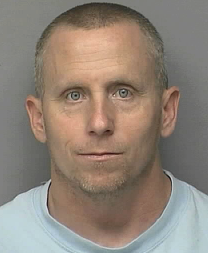
By Mallory Houser
KU Statehouse Wire Service
TOPEKA — Floyd Bledsoe, a man who was wrongfully convicted of the murder and sexual assault of his sister-in-law in 1999, said Tuesday that a proposed new bill in the Kansas Senate would have prevented his conviction.
“Anything less than adopting this bill would be an injustice to all,” Bledsoe said.
Bledsoe testified in favor of SB92 that would require Kansas law enforcement agencies to audio or audio visually record custodial investigations concerning homicides or felony sexual offenses.
Bledsoe said if there were audio recordings of all of the interrogations during his case, he might have not been convicted.
“I am a product of what happens when people get the choice whether they record or not,” Bledsoe said. “16 years is what it cost me.”
After nearly 16 years Bledsoe was released from prison in December 2015 when his brother confessed to the crime in a suicide note.
Bledsoe’s attorney, Alice Craig, also testified in favor of SB92, urging that the recording of these interrogations is crucial to ensuring a full understanding of law enforcement’s investigations.
Speaking on behalf of the Innocence Project, State Policy Advocate Michelle Feldman supported both Bledsoe and Craig’s testimonies, explaining that false confessions and statements made during police interrogations are a leading factor to wrongful convictions, including Bledsoe’s.
“Recording interrogations provides a complete and irrefutable account of what occurred during the interrogation and provides transparency and accuracy,” Feldman said.
While no opponents contested the intent of the bill, Amanda Stanley, legal counsel for The League of Kansas Municipalities, said she was concerned with the language of the bill. Stanley suggested a slight amendment to a section addressing what crimes audio or audio visual recordings would apply to. Proponents of the bill agreed to the suggested amendment.
Sen. Julia Lynn (R- Olathe) and Sen. Steve Fitzgerald (R- Leavenworth) expressed concerns about the cost of technology to record interrogations and its maintenance in the future, although each of the proponent’s testimony stressed that costs would be minimal.
According the bill’s fiscal note, the Kansas Highway Patrol estimates the purchase of seven sets of recording equipment and licensing would be $13,000. There would also be additional costs in labor, materials and supplies for the seven KHP locations, but it could not estimate those costs at this time.
Of the 21 states that have laws similar to this, Feldman said many save money when relying more on electronic recording policies.
“The officers are spending less time piecing together notes and are protected from lawsuits concerning allegations of misconduct and wrongful convictions,” Feldman said. “They’re saving money in the long run.”
Mallory Houser is a University of Kansas junior journalism major from Dallas.
